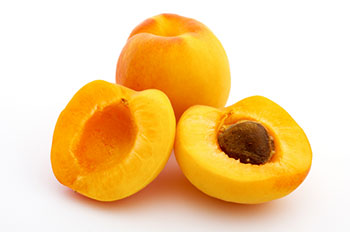More Health and Nutrition Bites
Related
Blood Pressure, Salt, and Potassium
We know that diets low in sodium (salt) help to lower blood pressure. What you may not know is that diets that are high in potassium, such as vegetarian diets and those high in fruits in vegetables, can also help reduce blood pressure.
Potassium-Enriched Salt Reduces Risk of Death
You might think that it's normal for people's blood pressure to increase as they age. Unfortunately, that's only true in cultures where the usual diet is high in salt - cultures with a usual diet that's low in sodium don't see this happen.
You CAN get used to less salt!
I've talked before about research that shows that those who gradually reduced the sodium level in their overall diet found that the same crackers tasted saltier after they'd become accustomed to a lower daily salt intake. Researchers in The Netherlands just published an interesting study in which they looked at people's responses to reduced sodium levels in bread.
Health & Nutrition Bites
Get the latest health and diet news - along with what you can do about it - sent to your Inbox once a week. Get Dr. Gourmet's Health and Nutrition Bites sent to you via email. Sign up now!
Three servings of fruit per day can reduce your risk of heart disease

Adding just three servings of fruit to a high-salt diet - without reducing the amount of salt you consume - could help reduce your risk of heart disease.
Back in 2012 an Australian team noted that those who increased the amount of potassium in their higher-sodium diet still reduced their blood pressures, but not as much as a lower-sodium/high-potassium diet.
High blood pressure is one of many symptoms of heart disease, but there are some indicators that are not so easily measured. We also know that a high-sodium diet can have negative effects on the epithelial cells that line the blood vessels: damage that can predict heart disease even in those with no current symptoms of heart disease.
Scientists in Australia recruited 39 adult men and women with normal blood pressures and cholesterol scores to test their theory that adding potassium to a meal high in salt could offset the negative effects of that salt on epithelial cells (Am J Clin Nutr 2015;101:939-46).
Once per week for three weeks, the participants were served a meal of commercially-available reduced sodium tomato soup. On one of the three occasions, the soup was served with the addition of a specific amount of salt. On a second occasion, the soup had the same amount of salt as well as potassium added to the soup. And on yet a third occasion, the soup was served with no additives.
The volunteer's blood was tested and other measures of heart activity were taken both before and after each meal, and the results compared to those of the other meals.
The researchers saw no significant effects of the three meals on the volunteers' blood pressures, but endothelial function was less affected by the high-potassium/high-sodium meal than the low-potassium/high-sodium meal.
What this means for you
This doesn't mean that eating more fruit can fully negate the effects of a diet high in sodium. It's another tool in your arsenal for pursuing a healthier heart. Besides, fruit is cheap, delicious, filling, and low in calories, so why not eat more fruit?
First posted: May 20, 2015
